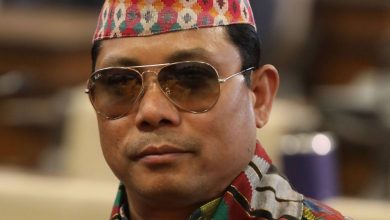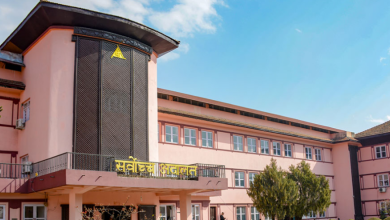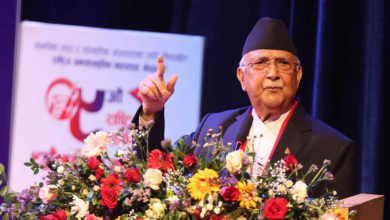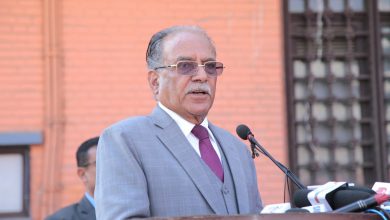‘Sagarmatha Sambaad’ is a global initiative for addressing climate crisis: State Minister
Kathmandu, April 7: Minister of State for Forests and Environment Rupa BK has said the Sagarmatha Sambaad (a multi-stakeholder dialogue) that Nepal will be hosting first time is a global initiative towards the mitigation of climate crisis.
Speaking at a Pre-Sagarmatha Dialogue Programme organised by the International Relations and Global Diplomacy Dialogue (IRGDD) in collaboration with the government, she said the event is targeted at those communities who are contributing to the least carbon emission.
“Nepal is highly vulnerable to climate crisis,” she said, adding that the initiative scheduled to be held on May 16-18 aimed at preventing the crisis.
Pema Gyamtsho, Director General of ICIMOD, said mountains are not just concerned with the people of the mountain regions, they are the global natural heritages and lifeline for human beings, instead, and time has arrived to return them to the nature.
“The Dialogue will be centered on what we could contribute to the nature with the highlights of climate change concerns in the Himalayan region,” he said.
Former Finance Secretary Madhu Marasini said the Sagarmatha Sambaed will be a significant forum for Nepal for international discussions on the matter. As he said, the federal has allocated six percent of budget for climate change and the proposed 16th periodic plan has targeted to increase it to 20 percent.
Climate change expert Dr Popular Gentle proposed to form a standing team to hold dialogues on the climate change issues in the international forum.
IRGDD Chair and former ambassador Sharmila Parajuli said the Pre Sagarmatha Sambaad aimed to highlight the significant relations between the mountains and humans.
It will be continued as a series and submissions from the events will be handed to the Sagarmatha Sambaad Secretariat, according to her.
Sagarmatha climber Dawa Tashi Sherpa underlined the need of collective efforts to save the mountains. “Only the efforts from locals are not sufficient to protect the mountains.”
Green Hydrogen Lab’s tea leader associate professor Dr Biraj Singh Thapa said Nepali spends billions of rupees in fossil fuels, underlining the need of implementing policies for promoting the use of hydrogen and renewable energy.









Comments